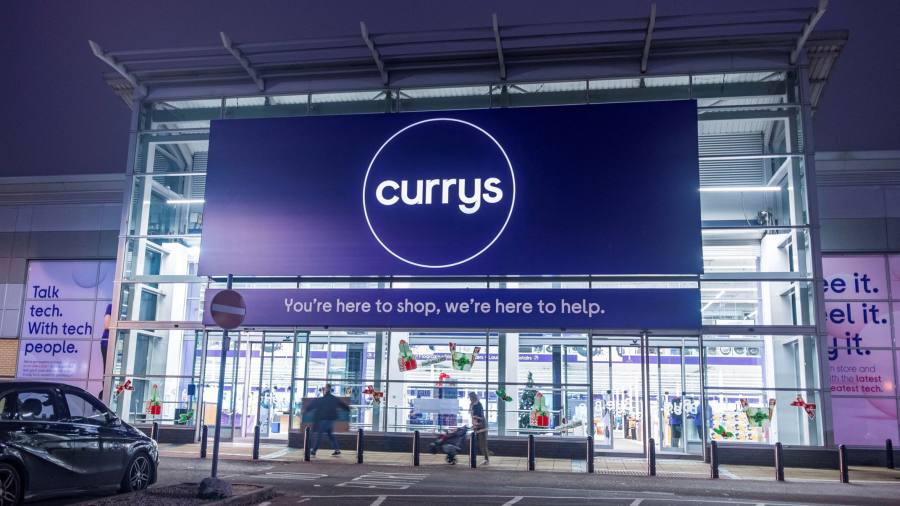
Six years after its merger with Dixons Carphone Warehouse, Currys has decided to write down £511mn of goodwill. The charge confirms what the market already knew: the deal was overpriced.
The British consumer appliance retailer may still be overestimating its goodwill, a balance sheet measure of the premium paid for assets over the fair value. Even after the writedown in its interim profits report it has £2.3bn. This makes up about a third of total assets. The ratio exceeds regional rivals and is far more than the goodwill calculated by the 68 largest non-financial UK companies that Lex has reviewed.
A regular valuation of goodwill, just as gilt yields jumped during September, explains the impairment. Remove this one-off and Currys made a home market operating profit of £25mn in the six months to October 29, up £5mn year on year. However, interest costs and Nordic discounting ate up almost all of that at the pre-tax line. Together with the impairment, the statutory loss was half a billion pounds.
Well before the cold weather set in, Currys was feeling the chill of a sales slowdown. The most pressing problem is in the Nordics, source of almost half the company’s turnover. A local price war has hit the business hard. That is bad enough. But Currys also has problems at home. UK and Ireland sales, the balance of group turnover, fell 10 per cent year on year.
The second half of the year, which includes the holiday season, should bring most of the company’s annual earnings. Currys has decided to mark down its full-year profit outlook anyway. Another Bank of England interest rate rise of half a per cent does not help. The share price dipped 5 per cent on Thursday.
With shares trading near 13-year lows, though not the price/earnings ratio, the market clearly does not have a warm feeling about Currys’ prospects. The combination of wintry economic conditions and a stock loaded with goodwill should temper investor interest.